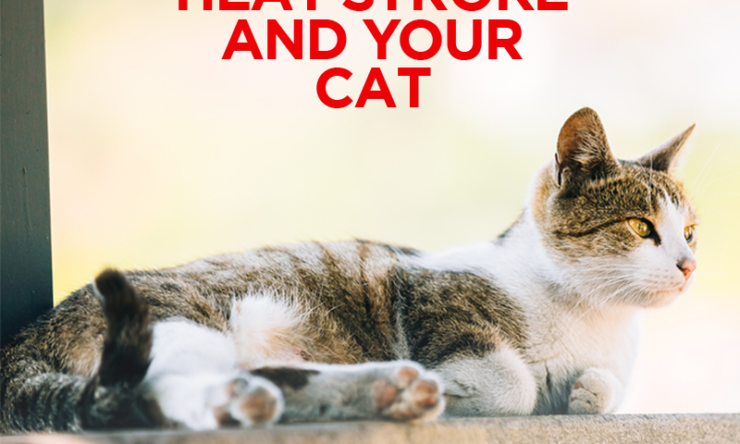Heat Stroke and Your Cat
We are in the height of the summer, and don’t let it slip your mind that your cats can be affected by the heat just like dogs can be. During the hottest days of the year make certain to keep your feline friend in mind and comfortable this summer. Every year, many cats are exposed to high temperatures of heat and tragically some become overheated.
Heat stroke is a life-threatening condition where the body’s internal organs begin to shut down as a result of elevated body temperature caused by high temperatures. Here are a few ways you can help prevent this from happening to your cat.
While cats might not take as many road trips as your dog companions do, that doesn’t mean that cats aren’t ever in the vehicle. It is common for cats to take rides in the car while going to the vet. Just like dogs, even being left in the car for a few minutes while you run in the store can be harmful to your cat and cause a heat stroke.
A general rule of thumb is that if people are comfortable with the temperature, your animals probably are too! That being said, it is always wise to watch for signs of heat stroke, as cats don’t have a way of regulating their body temperature like humans have. They cool their body like dogs, by panting and perspiration on their footpads. However, neither method is effective in cooling them off in high heat situations.
Even when it isn’t too hot, your cat can feel much hotter in a small space with no ventilation so it is important to keep that window open or the air on for kitty.
Keep an eye on your cat and make sure they don’t display any of the following signs.
- Panting
- Red Tongue
- Dark Red Gums
- Pale Gums
- Drooling
- Weakness
- Anxiety
If your cat exhibits any of these signs, call us or bring your cat to the vet immediately!
By following these tips and being aware of the temperature and your cat’s surroundings, you will ensure to keep kitty safe from heat stroke this summer. If you have any questions or concerns, you should always visit or call your veterinarian — we are your best resource to ensure the health and well-being of your pets.
SOURCE: Pet Health Network
COPYRIGHT: Local Value LLC






